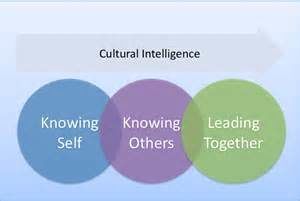The increase in international mergers and acquisitions, the norming of global teams, and the degree to which profit margins and innovation are dependent on doing business with people across the diversity spectrum means that people in organizations need to be flexible and constantly adapt to new ways of doing business. What worked for global payroll ten years ago, may not have worked one year ago and what worked six months ago may not work next month. To keep up with these changes, organizations need to be constantly raising the overall level of cultural intelligence of their business culture, and raising the Cultural IQ everyone in their workforce
Cultural Intelligence is the ability to develop relationships and work effectively with people from any group or culture different than your own. That can include race, ethnicity, religion, age, gender, sexual orientation, industry or work function.
It’s more than learning about one or two specific cultures. Cultural Intelligence is also a way of learning, to see people from different groups in their entirety. An example would be if you knew you were going to work in Costa Rica, and you studied everything you could about the history, traditions, and food, plus you understood how people do business, communicate and develop relationships there. However when you got there, your contact person had done the same for the United States and didn’t fit what you expected. Someone with a high Cultural IQ would very quickly adapt and know how to match that other person. Someone who is not as culturally intelligent would be confused and not know what to do.
At the same time, to assume that everyone knows how to do business with you is not culturally intelligent. Culturally intelligent people know how to prepare, develop relationships with people in any culturally diverse situation whether they know anything about that culture and are also have the ability to be flexible and adapt their own behavior.


Recent Comments